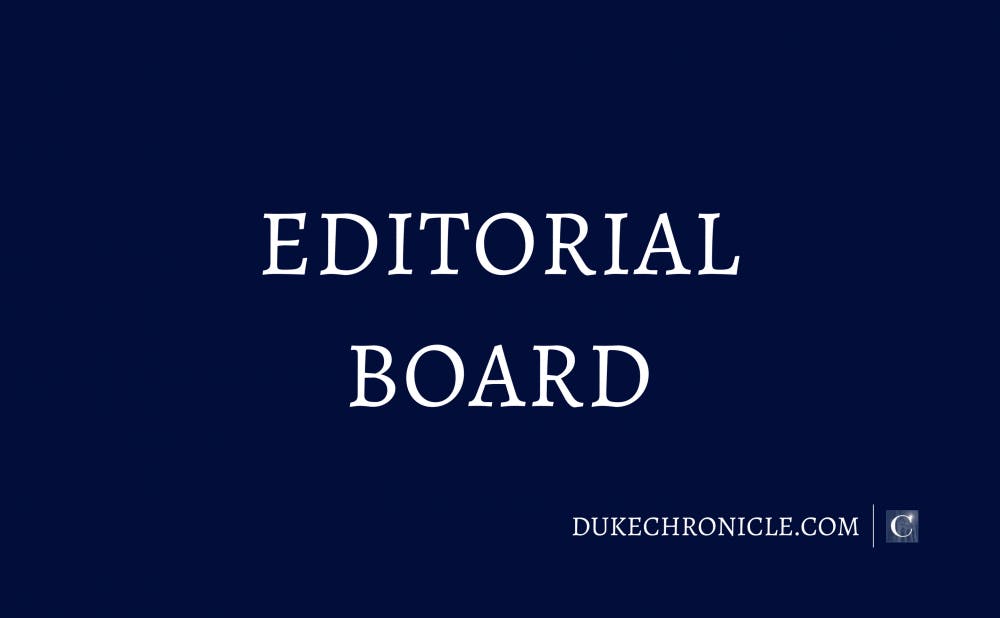On the eastern edge of China sits Duke Kunshan University, an institution that—in keeping with Duke’s mission statement—purports to promote knowledge in the service of society and free thought in a nation where a dictatorial Communist regime tramples over numerous freedoms. In particular, the westernmost precipice of Duke Kunshan’s home country has been undergoing unprecedented tumult and oppression. East Turkestan is home to between 11 million and 15 million Uyghurs, an ethnically Turkic and predominantly Muslim people. In recent years, the Chinese state have jailed and murdered Uyghurs in an attempt to destroy their ethnic identiy. A near tenth of all Uyghurs have been sent to “re-education camps” to be cudgeled into Chinese Communist ideology. To call for any action at this point would be premature and unrealistic; no reports have emerged of discussion being stifled at DKU. Yet, considering the stakes, a watchful eye over academic freedoms at DKU is a minimal duty that is incumbent upon all Duke students who care for our institutional mission and Duke’s representation abroad. Much of modern-day America’s concerns about race relations, as well as the vast majority of concerns that bubble to the surface here at Duke, center exclusively around racism in America. If anything, recent and continuing events in Western China are illustrative of the need to step out of our own world and to also recognize rampant xenophobia elsewhere.
The East Turkestan region is officially referred to as Xinjiang province by CCP leadership in an effort to strip the region of its ethnic identity—which is seen as a threat to the One-China ideal set forth by Mao Zedong. Under this thinking, all ethnic groups are part of a greater Communist China. Most recent developments have included Muslims being forced to drink alcohol and eat pork (both prohibited by the Quran), women’s long skirts (a sign of religious modesty) being trimmed by the Chinese police and restrictions being placed on access to the Quran itself. Mild offenses, such as passively practicing one’s faith, will land Uyghurs sentences in “re-education camps” where inmates are taught the “correct” set of cultural narratives and forced to deny their own faith. These camps have had their very existence denied up until a recent move by the CCP to officially codify them, legally institutionalizing coercive indoctrinations. Observable in these actions by the Chinese state is an explicit effort to cleanse the region of Muslim-Turkic Uyghur culture and to absorb an entire people into a narrowly guided party state. Uyghurs get an automatic ten percent deduction from their social credit score for their ethnicity. Praying daily will result in an extra ten percent deduction. Cultural cleansing is poorly disguised by Chinese state-run news agencies such as Xinhua as “traditional games.”
Should the events witnessed in Western China as of late occur elsewhere, the international community would be up in arms over ethnic cleansing, if not the need for humanitarian intervention. China’s position as a global forerunner in trade, however, has all but obscured tangible action against these appalling actions. President Trump has raised the prospect of sanctions, yet the President’s own Islamophobic tendencies will likely preclude any action by the United Sates in stymying China’s cultural genocide against the Uyghurs. The Trump administration’s tendency to deface multilateralism, as well as sidelining China along with our European allies in one motion, makes any joint response a mere dream. The U.S.’ system of alliances (not to absolve the Trump administration of any blame) already has a relatively poor record of effective humanitarian intervention with Kosovo and Korea arguably being the only real successes. Inaction or delayed responses on the part of the West still haunt our political conscience in memories of Srebrenica and Rwanda. Though Congress has displayed its rightful indignation over the matter, and Senator Marco Rubio has nominated imprisoned Uyghur activist Ilham Tohti for a Nobel Peace Prize, real action is nowhere on the horizon.
In 1986, under President Keith H. Brodie, Duke’s Board of Trustees voted 21 to 3 to sell the University’s holdings in South Africa and completely divest from the country in opposition to apartheid. David Maisel, a trustee at the time, argued that full divestment, as opposed to individual scrutiny, signaled a desire for complete structural change. In 2008, under President Brodhead, the Board approved a ban on all future investment in Sudan, a country with an appalling human rights record wrought with religious persecution and genocide. As students of a university that, though imperfect, has set a precedent of considering our foreign impact in countries with abusive regimes, we should follow this issue closely. The question of whether a course detailing in full the crimes committed in Western China would ever be taught at DKU is a daunting one that warrants consideration. Though these injustices are being committed thousands of miles away, to consider the human condition in places where our university has a stake, where our peers study abroad, should concern every member of the Duke community.
Get The Chronicle straight to your inbox
Signup for our weekly newsletter. Cancel at any time.

